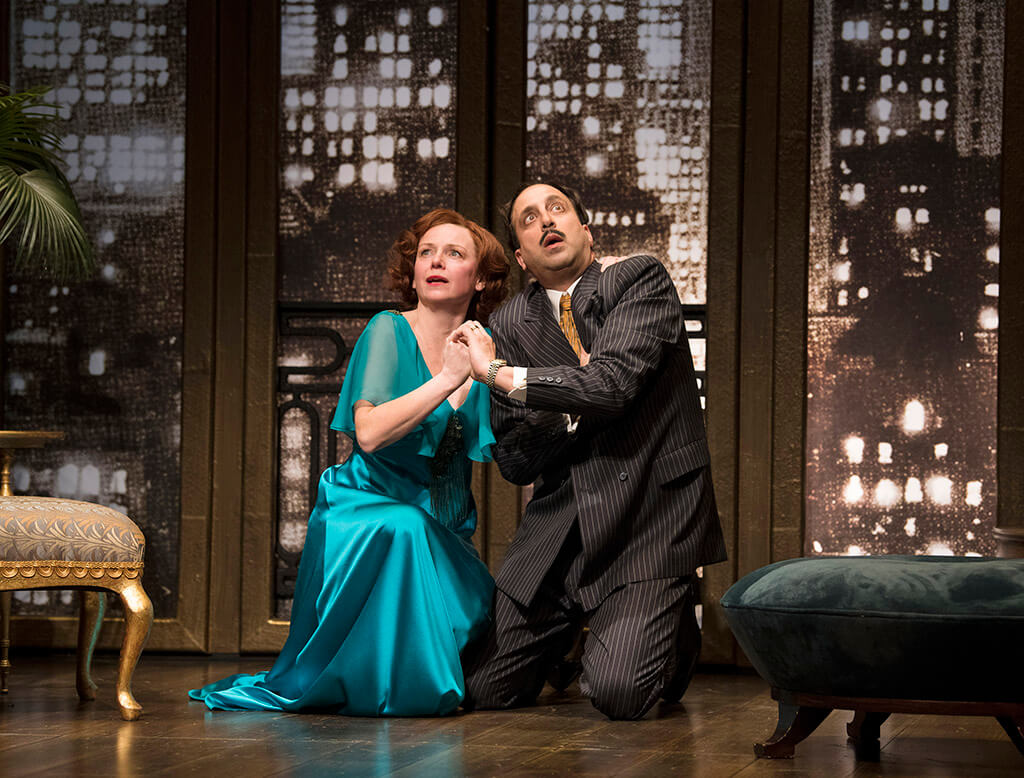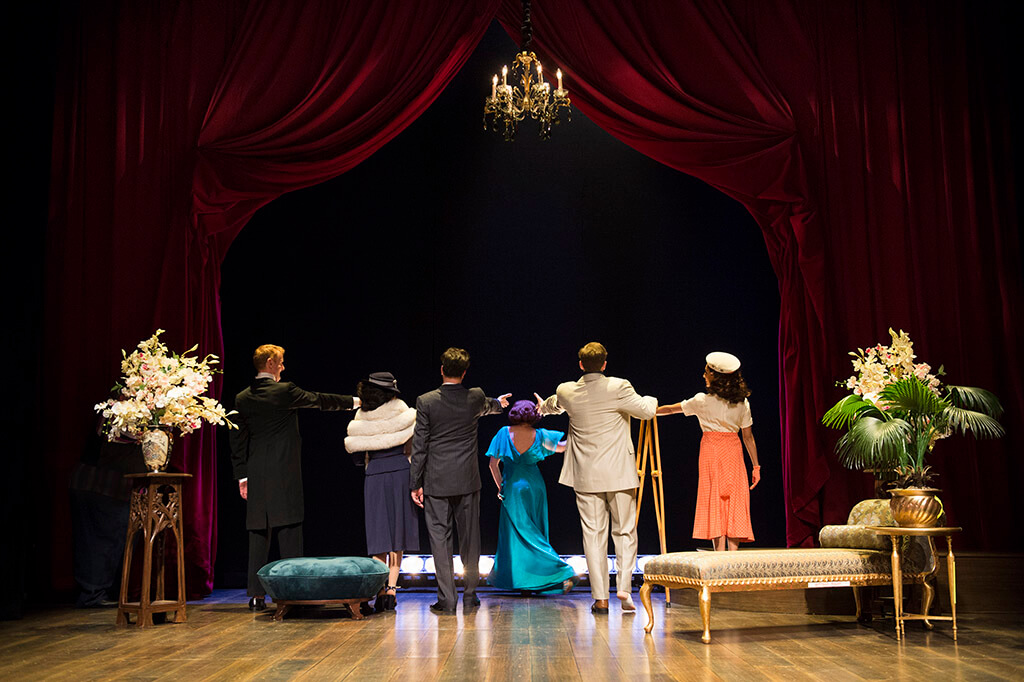
Shaw Festival 2018/ Stage Kiss by Sarah Ruhl, directed by Anita Rochon, Royal George Theatre, Apr. 11 to Sept. 1. Tickets available at 1-800-511-7429 or www.shawfest.com
Among her many accolades, distinguished American playwright Sarah Ruhl has been nominated for a Tony Award and has twice been a Pulitzer Prize finalist. More importantly, she is the recipient of the very prestigious MacArthur “Genius” Award, the sine qua non of American cultural honours. Not surprisingly, the Ruhl name is synonymous with plays that are sophisticated, clever, inventive and provocative, and Stage Kiss (2011) is classic Ruhl.
I’m attracted to the prolific Ruhl because none of her works resemble each other, which gives her canon a freshness. She is definitely not a formulaic writer. What her plays do have in common, however, is a philosophical inquiry that examines a concept from a myriad of viewpoints. Thus, in this play, the metaphor of a stage kiss leads to musings on love, marriage, romance, relationships, intimacy, human frailty, self-awareness, past joys, obsession, reality versus illusion, art imitating life (and vice versa), and the very nature of theatre itself. Another Ruhl-ism is to expect the unexpected or unconventional concerning the structure or ideas, or both. Ruhl is considered an adventurous playwright regarding striking out into new territory. The very quirky Stage Kiss contains not only one, but two plays-within-a-play that are themselves commentaries on the underlying philosophical reflections. As part of Ruhl’s themes and variations, the cast portrays real-life characters that are mirrored by the characters they perform on stage.
The incident that triggers the play’s existential journey is, of course, a stage kiss. Two New York actors, She (Fiona Byrne) and He (Martin Happer) are former lovers who find themselves cast as the lead roles in a play where they will have to perform a stage kiss. In the intervening years since their relationship ended, She has married a banker (Sanjay Talwar) and has a teenage daughter (Sarena Parmar). He has a kindergarten teacher girlfriend (Rong Fu). Rounding out the cast are Neil Barclay as the director of both plays-within-a-play, and Jeff Meadows as a jack-of-all-trades actor who is the protégé of the director. The stage kiss rekindles the love affair between He and She, with the result that She leaves her husband, and his girlfriend makes a stormy departure. As the custom, the Shaw ensemble performs in exemplary fashion the demands of both the play and the director. There are some lovely detailed characterizations from Meadows and Barclay in particular. Gillian Gallow’s sets and costumes are absolutely up to the best of Shaw Festival’s production values.
I am not so slavishly a devotee of Ruhl to not recognize a weakness in what is an otherwise entertaining theatre outing. Stage Kiss walks the line between comedy and farce, more often than not slipping over to the latter side. It would appear that director Anita Rochon has deliberately taken the farcical elements to an even greater ride into absurdity than, perhaps, may be in the script. Over-acting abounds. At this point, I should note that farce and buffoonery are not my favourite genre of theatre. I wanted Stage Kiss to be more clever, more biting, more mordant, more trenchant and less Marx Brothers. That being said, this is a play where the parts are better than the whole, and Stage Kiss contains many clever elements that are absolutely delightful. In other words, there is much to enjoy.

Take for example the plays-within-a-play. Ruhl has written a screamingly funny, hoary 1930’s melodrama, which stars He and She. A dying woman wants to see her lost love one more time, and her husband summons him. The plot machinations have to be the most ridiculous ever, the arch dialogue captures the superficial formality of the era to perfection, and the cast even bursts into the worst possible songs, courtesy of composer/sound designer Thomas Ryder Payne. This faux-period play would look perfect on Turner Classic Movies. Even the cast is astonished that the New Haven audience seems to like it. And a hilarious side note — He breaks an ankle in a rehearsal fall, and to explain why He is performing on crutches, the director has written a prologue. Since He is a sculptor, a marble bust has landed on his foot. The second play, featuring He and She again, is a supposed gritty drama that debuts in Detroit of all places. The improbable plot boasts stereotypical characters that include a whore with a Brooklyn accent, her john — a Northern Irish IRA man, and her violent pimp. The set is a replica of the seedy apartment He and She share in New York. The director was so enchanted with it, that he took pictures to give to his set designer.
In the final analysis, while the farcical elements may run amok in Stage Kiss, there is no denying the substance that underlies the play’s weighty themes.
And a final question to the Shaw Festival — why have you changed the program bios? It seems that the cast and crew were asked to write about what first brought them to a career in theatre. While this is certainly interesting, I also want to know the background. For example, Anita Rochon, the director of Stage Kiss, is new to me, but I had to go online to find out about her. I want credits instead of cutesy.
- INTERVIEW | Actor Diego Matamoros Takes On Icon Walt Disney In Soulpepper Production Of Hnath Play - April 16, 2024
- SCRUTINY | Opera In Concert Shine A Light On Verdi’s Seldom Heard La Battaglia Di Legnano - April 9, 2024
- SCRUTINY | Lepage & Côté’s Hamlet Dazzles With Dance And Stagecraft Without Saying Anything New - April 5, 2024



